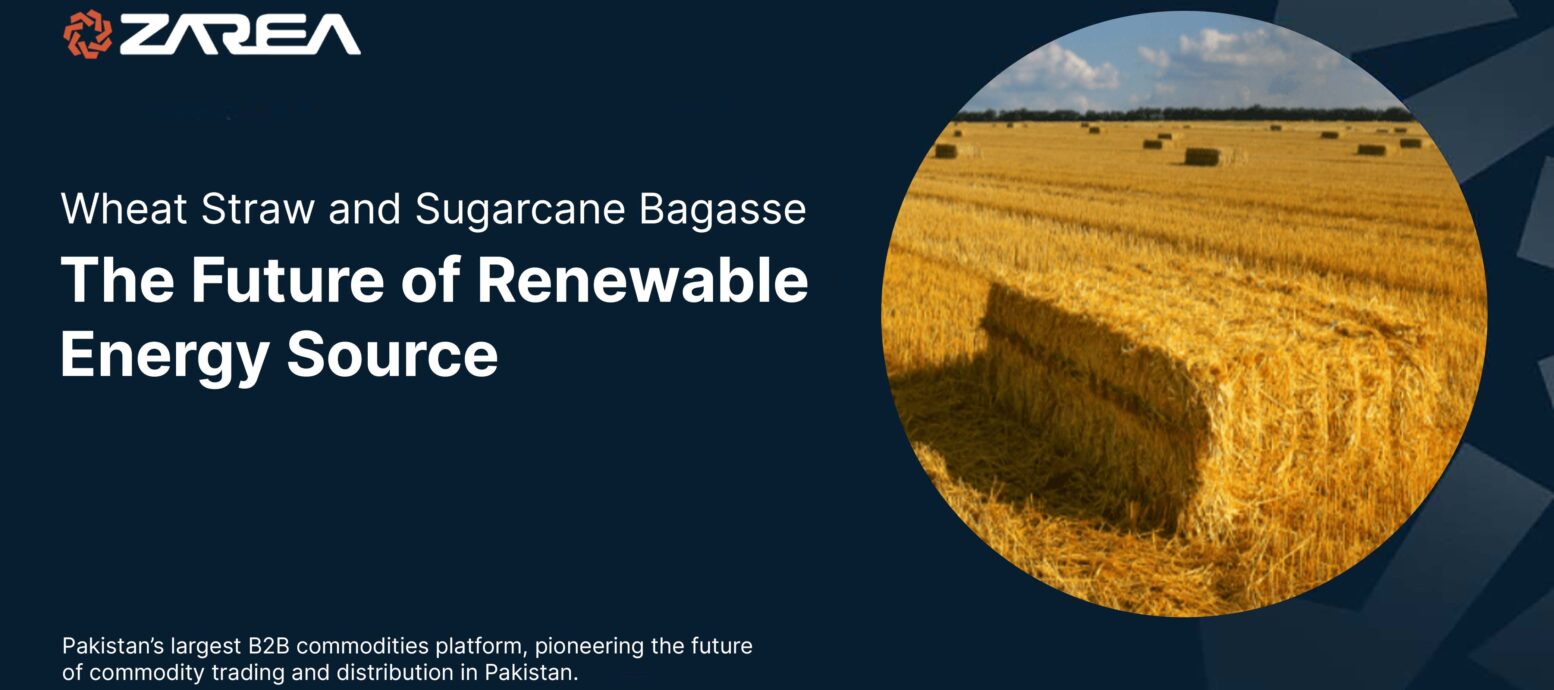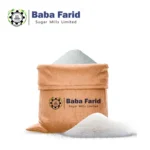Introduction – The Future of Renewable Energy Source:
Agricultural biomass retains significant potential as the future of renewable energy source within the sustainable energy sector. Significant and rapid depletion of fossil fuels, ever-increasing population, and urbanization have led to the renewable bioenergy revolution in Pakistan and worldwide.
This problem can be catered to efficiently by utilizing the abundant biomass resources in our agriculturally rich country. Therefore, we at Zarea Limited, assist you with the relevant agriculture biomass commodities trading for a green and sustainable Pakistan.
Now let’s dive into the eccentricities of the clean energy initiatives through agriculture biomass for a better, greener, and sustainable future.
What is Biomass Energy?
Biomass energy is a clean and organic form of energy that paves the way for sustainable energy solutions. It has great potential to play a vital role in the eradication of the intensifying energy crisis that prevails in Pakistan. Being an agricultural country, Pakistan has unfathomable biomass potential that has the potential to run 15 million biogas plants by 2030.
Agricultural biomass is the organic by-product of the various crops. This organic residue includes straw, husks, stalks, bagasse, etc. In most Asian countries only 35% of the total by-product is removed from the fields which have a significant recovery rate.
Zarea Limited understands the necessity of sustainable energy solutions therefore; we deal in agriculture biomass in the form of bagasse, corn cobs, husks, and wheat straws.
Sustainable Energy Solutions:
The abundance of biomass energy resources that we already have in Pakistan needs a little bit of tweaking and great minds to work on these sustainable energy resources in an insightful way to address the energy demand. Consequently, it will stabilize Pakistan’s energy sector and its dwindling economy as well.
What is Sugarcane Bagasse?
The combined contribution of the agricultural sector and its subsectors to Pakistan’s total Gross Domestic Product is 21%. Sugarcane is one of the main agricultural products. Sugarcane bagasse is the leftover material remaining after the juice is extracted from sugarcane. It is a renewable energy source that can be used in traditional and contemporary applications.
Sugarcane Bagasse Uses:
Power Generation: There are many uses for sugarcane bagasse in generating safe and sustainable energy to power electric plants for electricity production. Producing bioethanol can serve as a more environmentally friendly option than gasoline.
Biochar Production: Pyrolysis involves thermally decomposing biomass as a sustainable utilization method. Bagasse has the potential to be utilized in creating biochar, a sustainable and eco-friendly substitute for charcoal that can help mitigate climate change and improve soil quality.
Biogas Production: Bagasse can be used to produce biogas, which is a sustainable energy source. Biogas can be used for cooking, heating, and also for generating power.
What is Wheat Straw?
Wheat straws are what remains after the wheat crop is threshed and the grains have been separated. It is yet another plentiful renewable energy source in Pakistan.
Uses of Wheat Straw:
Biofuel Production: Bioethanol can be produced from wheat residue because wheat straw is rich in cellulose, making it an ideal raw material for generating biofuel. In addition, wheat straws can be used to produce biodiesel and bio-gasoline.
Biogas Production: Another eco-friendly energy source, biogas, can be produced from wheat straws by undergoing anaerobic digestion. The leftover from this procedure can also be used as natural fertilizer.
Pellets and Briquette: Wheat straws can be compacted into pellets and briquettes to serve as an eco-friendly, carbon-neutral option for producing heat and electricity.
Biomass System as the Future of Renewable Energy Source:
Utilizing biomass system in the production of sustainable energy solutions has been effective in significantly reducing the impact of climate change. The greenhouse gas emissions can be reduced up to a fair extent if renewable and carbon-neutral materials are used.Biomass when utilized sustainably also leads to waste management and reduction. Moreover, the dependence on already depleting fossil fuels can be reduced significantly by the use of sustainable and renewable energy sources.The depleting and poor soil health can also be taken into consideration by utilizing safe and sustainable energy solutions. Biomass systems will help strengthen the agricultural and climatic aspects of the world if we consider it seriously and take action today!
Conclusion:
Biomass system and future of renewable energy is the way forward in today’s world; therefore at Zarea Limited we promote the sustainable practices and provide top-notch agricultural products and biomass products to make the world a better and greener.
References:
Frontier in Energy Research: Unlocking the Potential of Biomass Energy in Pakistan
University of Birmingham: Unlocking the Potential of Biomass Energy in Pakistan


































